Testimonials
Our Master's students are from around the world with varied backgrounds and experience.
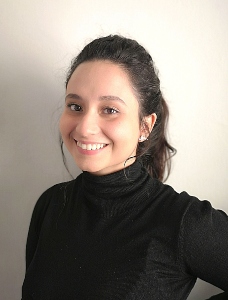
Ana Patrícia Sampayo-Zabala
Venezuela. Academic Year 2020-2021
Medical Doctor (MD) from Venezuela, I joined the Master's in Brain and Cognition to fulfill my personal and professional interests in neurosciences.
I am currently working in Barcelona as an Attending Physician in a nursing home for people living with dementia, Parkinson's disease, and other neurodegenerative conditions.

Haley Medeiros
Boston, United States. Academic Year 2020-2021
I studied Psychology and Education as an undergraduate at University of Massachusetts Amherst. After graduating from the master at UPF, I worked at an oncology clinical research biotechnology company in Cambridge, MA.
I came to UPF to better understand the neural mechanisms that underlie developmental progression, particularly in language development. I also wanted to improve my programming skills in a neuroscience field. Beyond that, I was also interested in living in the lively, exciting, international city that Barcelona is (best city in the world!).
I will begin a clinical psychology master with a focus in early intervention and diagnosis at Northeastern University in Boston in fall 2021. My research will focus on how delays and disabilities are linked to play and language abilities during development.
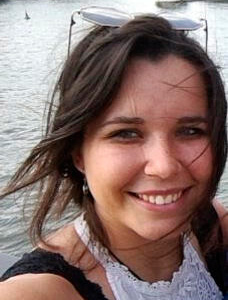
Laura Lille
New Caledonia, France. Academic Year 2017-2018
I wanted to dig into cognitive science and to do an internship in a research institute. I found this research master which proposes an interdisciplinary program (with classes ranging from language to social cognition to computational neurosciences for example). Students with completely different backgrounds are welcome, which I find very rewarding. Then, you add very good researchers as teachers and the city of Barcelona and my choice was made.
I am doing my master thesis in the Rubén Moreno Bote's Theoretical and Cognitive Neuroscience group. I am studying decision-making with computational models. The focus of the project is : how a person's preferences evolve across time and what is the best model to represent these evolutions?
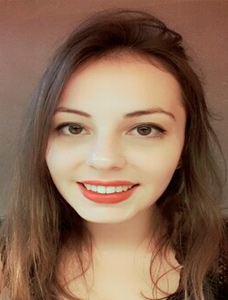
Gizem Senel
Istambul, Turkey. Academic Year 2017-2018
I studied Psychology at Maltepe University. I was working as an intern psychologist before moving to Barcelona.
I have decided to apply for Msc. Brain and Cognition because I was mainly interested in understanding the broader approach of Cognitive Neuroscience from an interdisciplinary perspective. I wanted to continue my studies in the field of neuroscience research, and UPF gave me an amazing opportunity not only to learn from the best minds in the field but also to do research alongside them.
I am a member of Ruben Moreno's Theoretical and Cognitive Neuroscience Group. The aim of my thesis is to understand the neural correlates as well as the behavioural predictors of decision-making. I will also be presenting a poster on "Artificial Networks and Integrated Information" in the Human Brain Project's upcoming conference on consciousness.
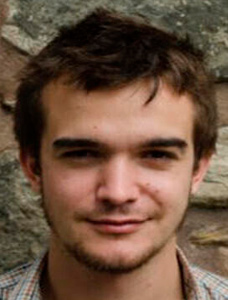
Adam John Harvey
Fontainebleau, France. Academic Year 2017-2018
I have a BSc in Neuroscience from Edinburgh University, Scotland, and am taking a leave of absence from my medical degree there to complete the MBC.
I chose this course as the CBC is well known internationally for its work on bilingualism, which is one of my main interests in neuroscience. The ease of access to the materials you need – if you are motivated – inspires self-directed learning, and the fact that it is all located in the centre of such a vibrant city is a huge plus.
I am conducting a study as part of the Speech Production and Bilingualism group, in collaboration with the BrainLab at the University of Barcelona. The project is based on how the brain builds expectation. More specifically, we are recording EEG signals when bilingual subjects are expecting to hear one of their two languages, but instead hear nothing. This work will hopefully help us understand some of the neural processes involved in ‘loading’ a language when listening to speech.
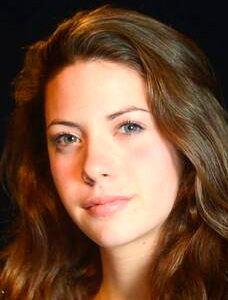
Alba Fernández
Madrid, Spain. Academic Year 2017-2018
I achieved my university degree in Biology by The Complutense University of Madrid. I performed my bachelor's final project about memory in Drosophila at the Cajal Institute of Neuroscience.
To be honest there is not a unique reason to be here. Since the first moment that I found this master I was really interested on it. Not only for the good teachers or the prestigious university but also for its approach to the scientific investigation and its international character. Beyond this master, I also was really interested in living away from home to be more independent. In my opinion, there is not better place to do it than Barcelona, it is a big international city plenty of fun activities, good weather, and sympathetic young people from all over the world.
Currently I am doing my master thesis in the Multisensory Research group (MRG), under the supervision of Salvador Sotto Faraco, one of the teachers of the Master in Brain and Cognition. My project uses EEG to test if memory retrieval in humans is affected by the angle phase of brain oscillations at which the to-be-remembered stimulus arrives.
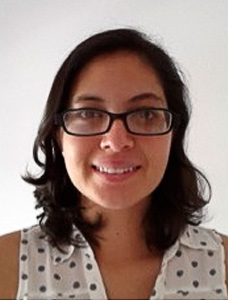
Candice Frances
Argentina. Academic Year 2015-2016
I have an undergraduate degree in Psychology that I obtained at New College of Florida (USA). After graduating, I took a year off and worked as a lab tech.
There are several reasons why I moved here. For one, I was very interested in the research that is done here on the cognitive aspects of bilingualism. I also wanted to live in a new place and found Barcelona to be the perfect place for a fresh start. Finally, I liked that the program brings together people from very different countries and backgrounds, which provides fertile ground for learning both inside and outside of the classroom.
I am focusing on how accents affect the way we process information. Accents provide a lot of information about a person: country or region of origin, possible social status, evokes stereotypes we have of different groups, and so on. This is the case not only with non-native accents (e.g. someone from Germany speaking Spanish) but also with native accents that are foreign (an Argentinean speaking Spanish in Spain). My research focuses on the latter: how do we process foreign-native accented speech? Do we remember it the same? Do we believe it the same? Does our brain respond the same way to a foreign accent as when we hear our own accent?
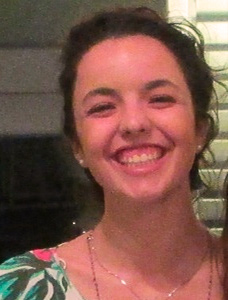
Leonor Castro
Portugal. Academic Year 2015-2016
I graduated from an Interdisciplinary Consciousness program, a double major in biology and philosophy, at Tel Aviv University. I am also a professional dancer (ballet and contemporary) and was dancing in a professional dance company in Israel for two years.
I joined the Brain and Cognition master because it combines cognitive science and neuroscience, the interdisciplinary field that I’m most interested in. I wanted to have the opportunity to develop my own experimental project, to have the possibility of using different machinery, and this program gives us the unique opportunity to do all that and to learn from and work side-by-side with great researchers.
I am doing my project at the Multisensory research lab, and it is part of a study that analyses three different effects: the Simon effect, the Gratton effect, and the cross-hand effect. My aim is to gather new neural information, using EEG and ERPs, on these effects within the Visual and Tactile modalities.
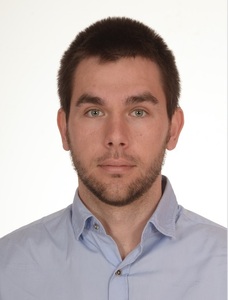
Joan Rué
Sitges, Spain. Academic Year 2015-2016
I am from Sitges, a little village near Barcelona , and before this master I studied Psychology and Biomedical Engineering.
I chose to study this master because I wanted to do my thesis with Gustavo Deco and learn more about whole brain modeling. Also, because there were appealing funding opportunities.
Thanks to this master, I had the opportunity to learn how to use manifold learning techniques to uncover the intrinsic temporal structure of resting and sleeping fMRI data with Gustavo Deco, but also, it gave me the chance to work as research assistant in Luca Bonatti’s group and do an internship at the neuroscience company Neuroelectrics.
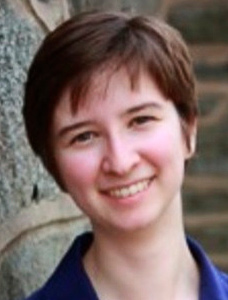
Katherine Marcoux
United States. Academic Year 2015-2016
I studied Linguistics and Languages (Japanese and Spanish) as an undergraduate at Bryn Mawr College. After graduating, I taught English in Andorra for an academic year, during which I enjoyed teaching and living in a multilingual environment.
I decided to enroll in the Master’s in Brain and Cognition program because of the research currently being conducted by faculty, particularly that involving bilinguals. It is important to me to be surrounded by classmates from varying backgrounds, allowing us to benefit and learn from each other’s unique perspectives.
I am a member of Dr. Albert Costa’s Speech Production and Bilingualism group. I am conducting research on an individual’s evaluation of personality traits based on hearing brief utterances, specifically “Hello”. What is it that we glean from an individual’s voice? Are there agreed upon personality evaluations associated with a particular type of voice? Is there universality in voice evaluations across languages? What vocal information do we use to evaluate these voices?
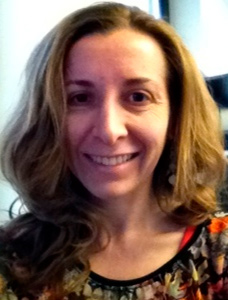
Oana Iosif
Romania. Academic Year 2015-2016
I have an undergraduate degree in Economics, followed by an MBA which I completed in Spain. I have lived in the US, Spain, and Italy, and before joining this program I was working in Finance.
I joined the Brain and Cognition master because for the past few years I have been very interested in the interdisciplinary field of Cognitive Science and I decided to go back to graduate school for a career change. I was looking for a program that would be open to people from different backgrounds, like myself, who possess quantitative skills and a strong interest in this field. I find that the B&C master is well-balanced in providing a wide knowledge base and hands-on research experience, which makes it a good preparation for PhD studies.
My project is part of a study of a specific aspect of consciousness, namely whether multisensory integration occurs below the level of awareness. It uses binocular rivalry and audiovisual integration to determine whether a sound can bring up faster an unconscious stimulus to awareness. It also differentiates between the effects that are due to bottom-up attention versus multisensory integration by testing a condition of noise interlaid with silence.
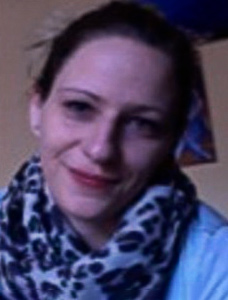
Mara Rolke
Germany. Academic Year 2015-2016
I did my undergraduate in Psychology at the University of Aberdeen, Scotland.
Barcelona is a wonderful city and constitutes a pool of a diversity of people. Being able to live and research here is particularly fortunate. I hope to pursue researching in the field of meditation and, more general, consciousness. Ultimately, I wish and hope to work in the area of sleep and dream research, more precisely, with respect to lucid dreaming and its benefits.
My thesis project entails very basic physiological measurements during meditation practice. I guess, in order to make this highly complex and diverse object of research suitable for empirical scientific investigations there is still a long way to go. Hence, there seems to be a need for controlled studies that ultimately allow for generalisation and comparison of results. Starting at this very basic level of physiological effects, I hope to contribute to a growing body of research in this field.
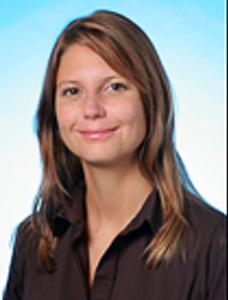
Martina Maier
Switzerland. Academic Year 2015-2016
I came to Barcelona two years ago to do my first Master in Cognitive Systems and Interactive Media at Universitat Pompeu Fabra. Since I graduated I have been working in the SPECS Lab of Pompeu Fabra as a research assistant. Before I came to Barcelona I was working as a marketing specialist in various financial institutions and earned a bachelor’s degree in Business Communication.
Barcelona seemed to me always a very attractive city to live in. As I was seeking for a change, I started to search for possible university programs here and discovered the interdisciplinary master programs offered at Pompeu Fabra. As I was always fascinated by technology, brain and research I decided to give it a try and enter the academic world.
y research activity in SPECS involves investigating in novel virtual rehabilitation tools for stroke patients. For my master thesis I chose to work on multisensory integration, where I am trying to find out how sensorimotor adaptation can change the way we integrate our senses.
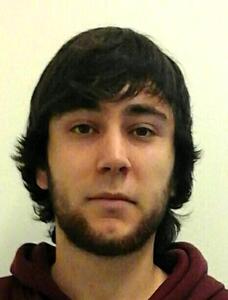
Nicolás Rozado
Argentina. Academic Year 2015-2016
I studied psychology in Universidad Complutense de Madrid (Cognitive Science specialization).
Doing an internship abroad I met people that knew some of the teachers and research groups here, they told me nice things about them, so I thought it would be a good place to meet new people, ideas, methods, etc. Also the name Brain and Cognition hooked me, as I was trying to avoid those brain and more brain programmes. Important to mention the multidisciplinarity between teachers (and also between students), it is a great thing.
I would like to learn about brain modelling (complex dynamics, chaos), that's why I'm doing my project with Gustavo Deco, at the moment focused on measures of intrinsic ignition (brain states, hierarchy...).
